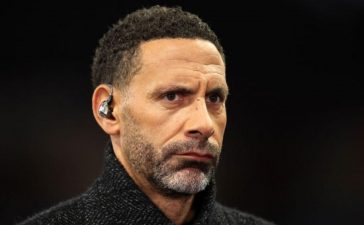Campaigners, politicians and young people who led grassroots efforts to put international children’s rights standards at the heart of Scottish law are celebrating the passing of a landmark Holyrood bill.
The Scottish parliament voted unanimously on Thursday afternoon for Scotland to become the first devolved nation to incorporate the UN charter on the rights of the child (UNCRC) into domestic law.
Nearly 1,000 days after a challenge by the Westminster government threatened to derail the incorporation bill, the cabinet secretary for social justice, Shirley-Anne Somerville, told MSPs that the legislation would “change the way we think about children’s rights” and provide “everyday accountability … across public services in Scotland”.
The UNCRC grants all people under the age of 18 a comprehensive set of rights – including rights to health, education, family life, play and recreation, and protection from abuse and harm – and sets a legal requirement for all public authorities to comply with them. Scotland was in breach of the convention until November 2020, when it banned the physical punishment of children.
The Holyrood bill was first passed unanimously by MSPs in March 2021, but after a challenge from UK law officers, the supreme court ruled that four sections required amendment because they went beyond Holyrood’s powers.
This was a “massive low point”, said Jack Bell, 21, who became involved in the incorporation campaign as a teenager through the Duke of Edinburgh’s award scheme. “It’s a huge relief to see it finally pass,” he said. “It was led from the grassroots by children and young people who put their heart and soul into learning about complex law at quite a young age.”
Suki Wan joined the campaign eight years ago, at 17, when she was first elected to the Scottish youth parliament. She said: “I always had this image in my head that rights were up in the clouds and without help and support from adults, children couldn’t really reach them. If they are put into law, it makes it so much easier for children to reach their rights.”
The supreme court ruling meant it was necessary to narrow the scope of the bill to fit within devolved powers, which Somerville described as “deeply disappointing”, though the Scottish Conservatives’ deputy leader, Meghan Gallacher, countered that it was a result of Scottish government “incompetence”. Other MSPs urged the government to learn lessons from a fraught legislative process that the former Scottish children’s commissioner Bruce Adamson said had been beset by “heartbreaking” delays, a lack of transparency and “constant broken promises” by Scottish ministers.
Juliet Harris, the director of Together, the Scottish Alliance for Children’s Rights, said it was a historic moment. “As we celebrate, we continue to urge the Scottish government to seize opportunities to expand the scope of the bill and continue funding the essential programme of work needed to embed the UNCRC across all public services. The UNCRC bill signifies legal change, but its true power lies as a catalyst for cultural change,” she said.
Like all Holyrood bills, this one is now subject to a four-week period during which the UK government may make a challenge before it can be submitted for royal assent. Some campaigners have privately expressed anxiety about a further challenge given the UK government’s current position on human rights law.
Emma Hutton, the chief executive of JustRights Scotland, said she was “concerned to hear suggestions that the UK government might challenge today’s vote in Holyrood”. She said: “Here and in other areas, Scotland’s lawmakers have shown leadership in advancing human rights, which we hope to see continue with a new Scottish human rights bill next year. This stands in stark contrast to the current toxic legislation emanating from the Westminster parliament, which expressly seeks to exclude some groups of people from the human rights protections that belong to us all.”
Nicola Killean, the children and young people’s commissioner in Scotland, described the vote as “a very significant step towards making children’s rights real in law”. She said: “Children and young people have led the way in campaigning for UNCRC incorporation for decades, and we are so close to seeing their dream – and ours – become a reality.”










